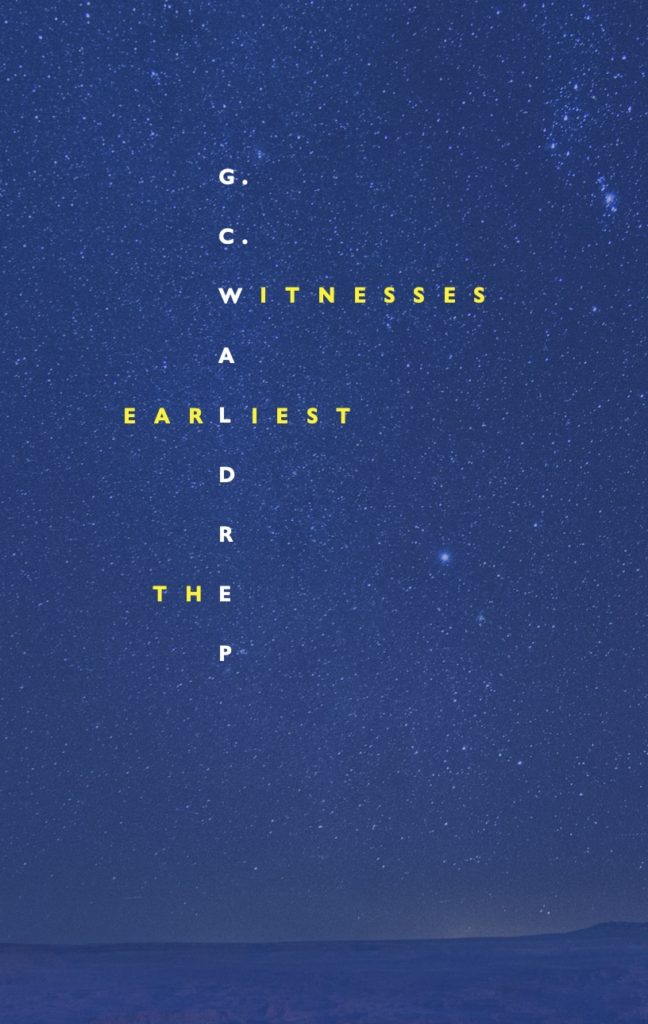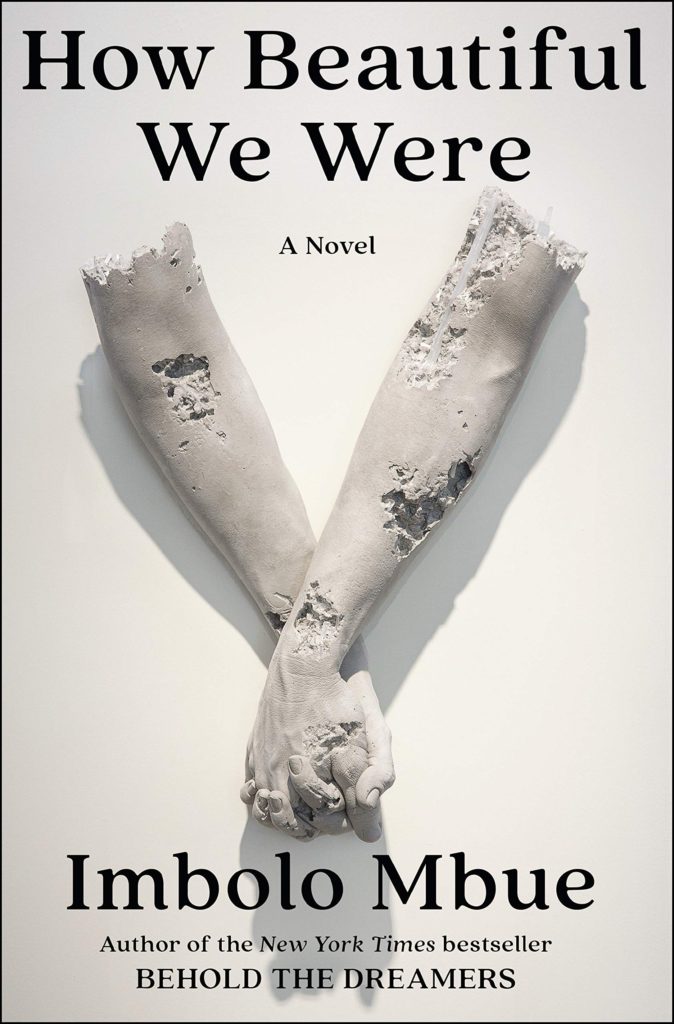
The Earliest Witnesses by G. C. Waldrep
Can we touch the gods? What does the body feel when language fabricates transparency? How do we perceive a world without absolutes? Why do we sometimes wish to never speak? These are questions raised by G.C. Waldrep’s newest collection of poetry, The Earliest Witnesses. Encountering meditations on a variety of subjective and societal crises, readers find themselves stretched across distant spaces: museums, groves, abandoned churches, checkout lines, operating tables, wheat fields, playgrounds with shouting children, and plenty more.
Despite the poems’ lamentations of language’s inaccuracy, Waldrep’s voice is sincerely intimate and precise. His poetry seamlessly sews together parentheticals within parentheticals, ambiguous subjects and referents, biblical verses, pastoral philosophy, mathematical proofs, and neuroscientific models. Waldrep often blurs the lines between the speakers’ selfhoods and the reader’s positionality, involving and transforming the reader through the poetry’s examinations.
The Earliest Witnesses begins with a foreword that describes the poetry as “desire-poems” in which “sight becomes both the facilitator and impediment of desire, in collusion with language itself.” Such an introduction invites readers to believe that the poems that follow are about desire, senses, and language; however, these three forces are not the objects of the poetry but its instruments—mutating and developing the meaning readers draw from the poetry.
This collection of poetry is not to be read in one sitting, for each time a poem meditates, so must the reader. Simultaneously engaging and alienating, The Earliest Witnesses leaves the reader “Raveling, & / unraveling” with its inward reflection, apocalyptic fatalism, and enchanting hope.
– Sam Hyman
Portraying a fictional African village faced with its ruin at the hands of an American oil company, Imbolo Mbue puts her novel’s titular We under continual fire. Neither a simple moral tale of good and evil nor a wholesale anthem of national empowerment, How Beautiful We Were celebrates its main characters’ efforts against colonial abuse just as much as it laments them. Mbue levels the novel’s most hopeful points with tragic truths and unanswerable questions, leaving the reader uncertain as to what the fictional village of Kosawa can offer its real-world analogs, the specter of colonialism looming over so many African countries today (including the author’s hometown, Cameroon). But it’s the novel’s masterful display of unsureness—the reservation it shows in lauding the wisdom of the past, the knot it finds in the stomach of the present, the unpredictability it repeatedly acknowledges—that gives it its realest, most human qualities.

How Beautiful We Were by Imbolo Mbue
However grave or resigned the novel’s past-tense title might seem to make that We’s current condition (are We no longer beautiful?), it’s no accident that the story takes place in a highly charged present tense. For all the apparent hopelessness of the novel’s opening sentence, “We should have known the end was near,” Mbue insists on that “We’s” every triumph. After successfully avoiding an altercation with American soldiers searching for government workers recently kidnapped by the rebelling Kosawans, the children of the village declare that “Many years from now… the children of Kosawa will compose a song about this first victory that ultimately led to our vanquishing our first.” As the novel repeatedly shifts narrative voice between chapters, it sees these kinds of future hopes through the daring eyes of the town’s men, the questioning and vindictive eyes of its neglected matriarchs, and the Fanon-reading eyes of its America-sent child Thula, whose fraught relationship to her village’s colonial rebellion goes hand in hand with an equally fraught liaison she develops with an American journalist she met in Kosawa.
At one point, the villagers sing a song about fish who escape the belly of a monster by itching the insides of its stomach for so long that the monster vomits them out. Brutal? Yes. Representative of all the persecuted nations and peoples fighting in slow but necessary ways toward independence today? Absolutely. But triumphant? Not entirely. So runs what seems to be the general philosophy of How Beautiful We Were: “This story must be told, it might not feel good to all ears, it gives our mouths no joy to say it, but our story cannot be left untold.”
-Ryan Daar